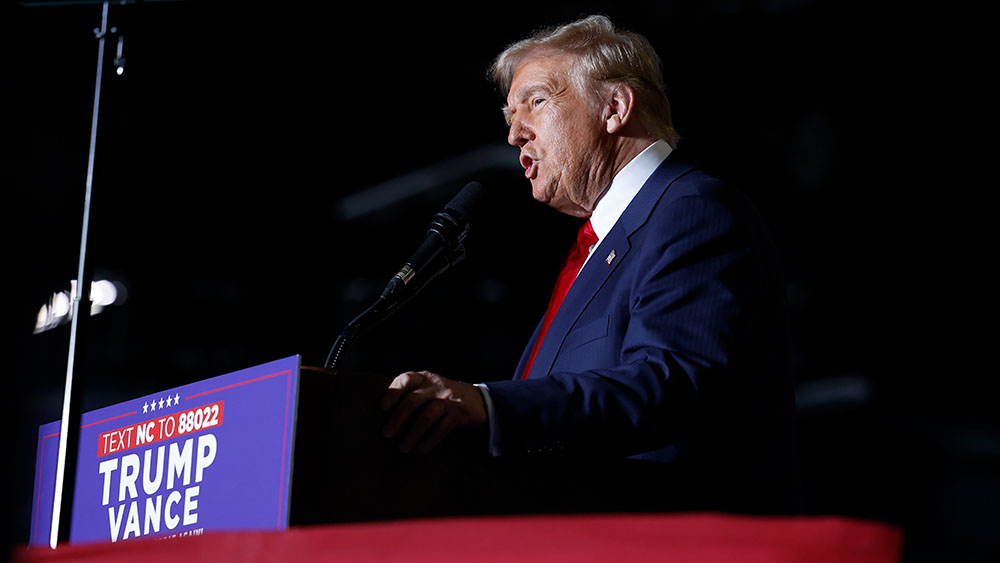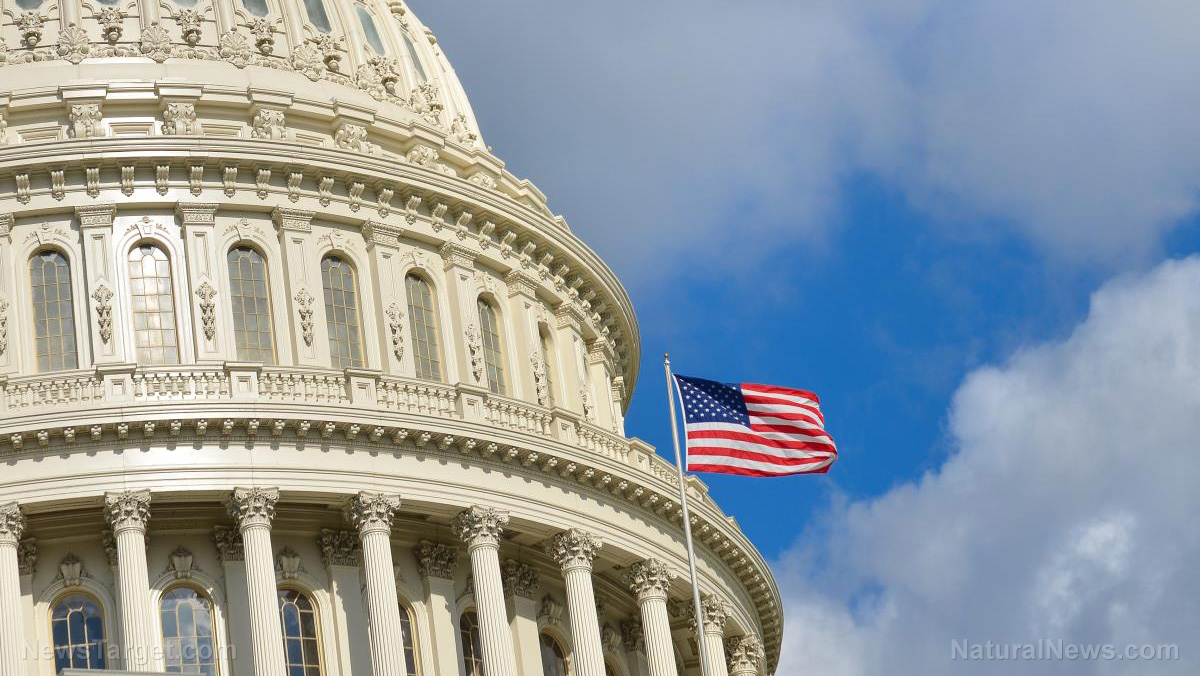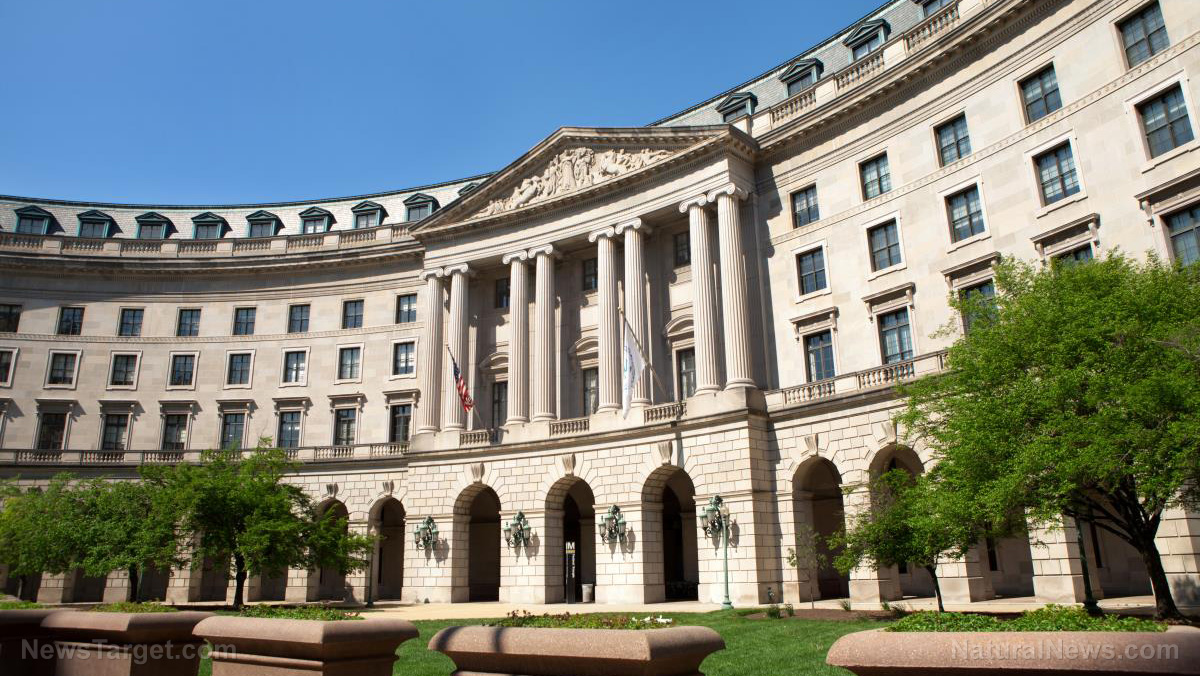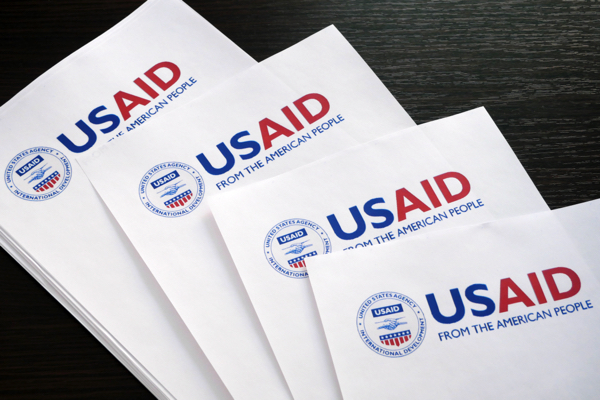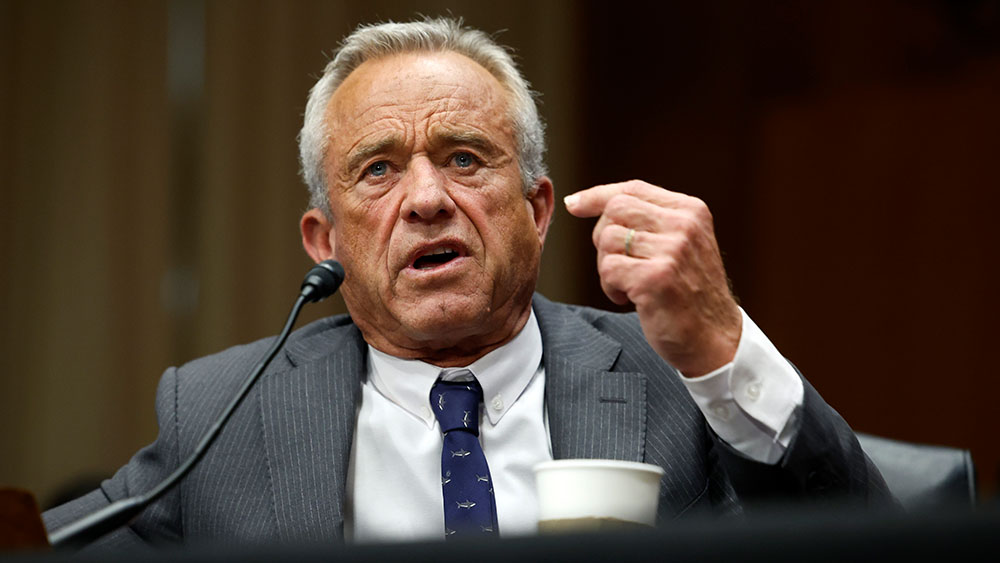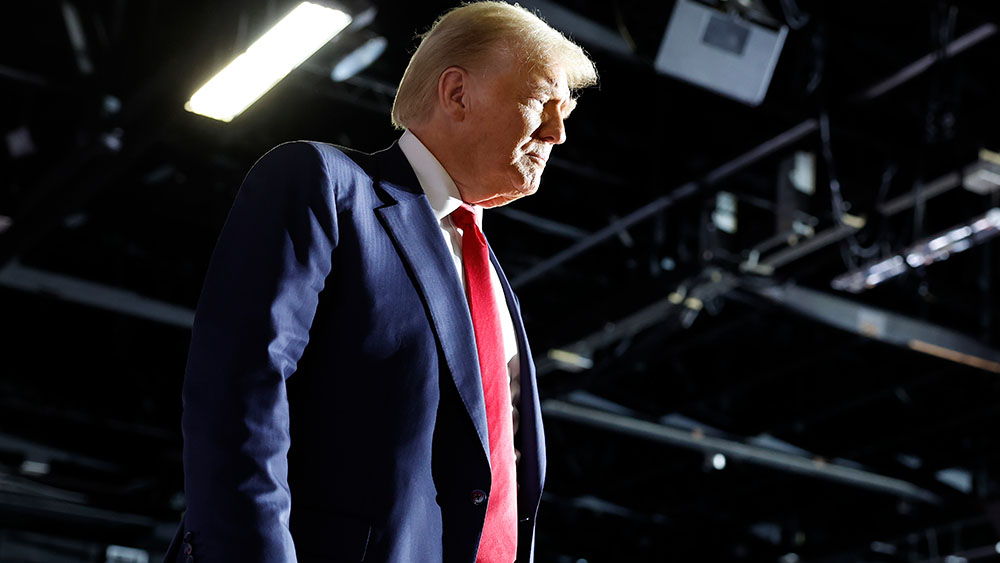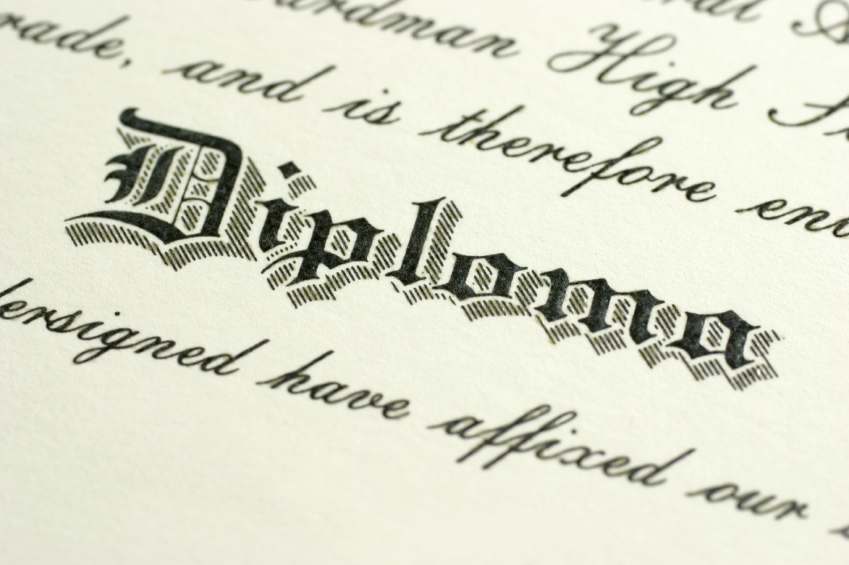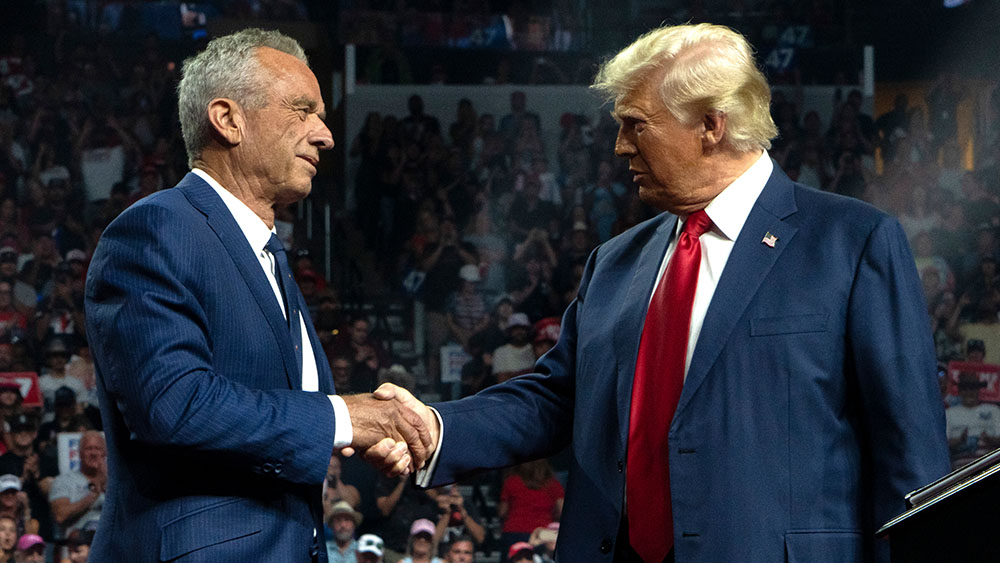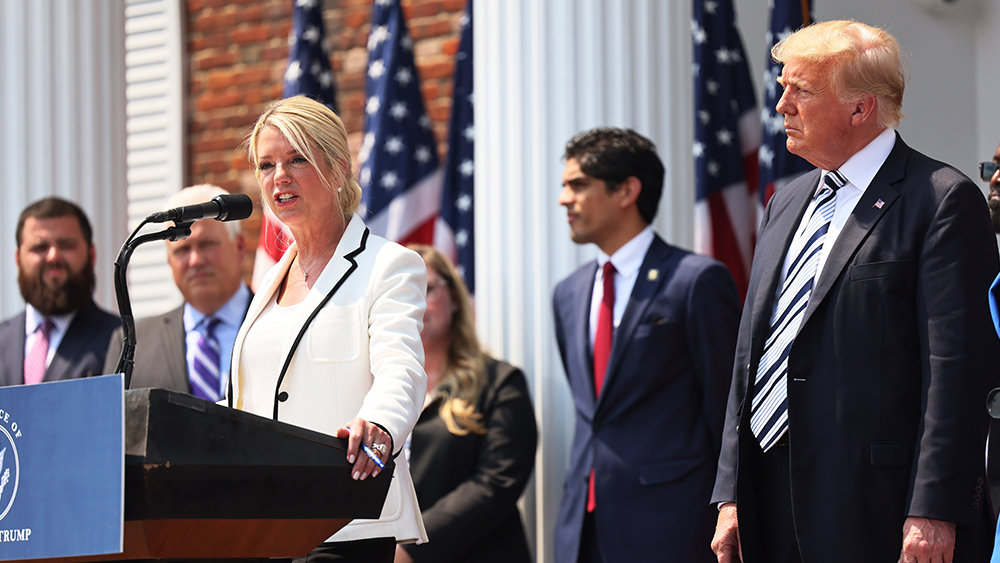Biden decries “oligarchy” while riding wave of record-breaking dark money
01/18/2025 / By Willow Tohi
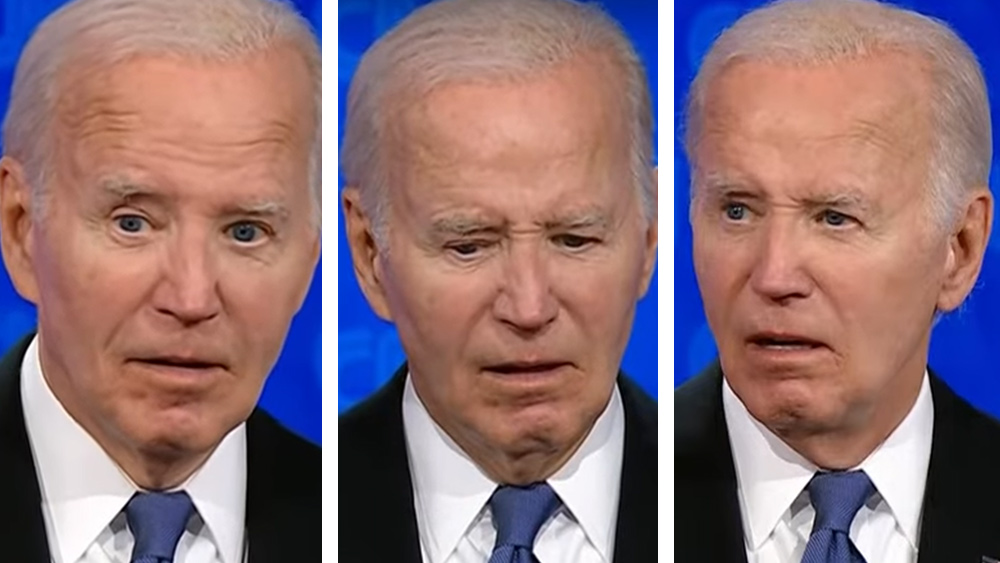
- President Joe Biden has faced criticism for his campaign’s reliance on dark money donations, which contradicts his stance on campaign finance reform.
- In 2020, Biden’s campaign received $145 million in anonymous donations, the largest sum ever recorded for a presidential candidate.
- Democrats, including Biden, have historically opposed dark money, but liberal groups funneled more than $514 million into the 2020 election cycle, compared to $200 million for Republicans.
- The For the People Act (H.R. 1) aims to require greater donor disclosure and curb the influence of dark money, but critics argue that Democrats are exploiting loopholes while advocating for reform.
- Both parties continue to use dark money, and the debate over campaign finance reform highlights the tension between principles and political power in American politics.
President Joe Biden’s recent denunciation of wealthy “oligarchs” has drawn sharp criticism, as revelations about his 2020 campaign’s reliance on record-breaking dark money donations highlight a glaring contradiction. Despite positioning himself as a champion of transparency and campaign finance reform, Biden’s campaign benefited from $145 million in anonymous donations, the largest sum ever recorded for a presidential candidate. This irony has not gone unnoticed, as polling data shows Biden’s approval rating languishing at just 33 percent, with nearly 60 percent of Americans viewing him unfavorably.
The dark money paradox
Dark money—funds from undisclosed donors funneled through nonprofits and shell companies—has long been a contentious issue in American politics. Democrats, including Biden, have vocally opposed such practices, arguing that they undermine democracy by allowing wealthy individuals and corporations to influence elections without public scrutiny. Yet, in 2020, dark money overwhelmingly flowed to Democratic causes, with liberal groups directing more than $514 million into the election cycle, compared to roughly $200 million for Republicans.
Biden’s campaign was a major beneficiary of this trend, attracting $174 million in dark money support—more than six times the $25.2 million that boosted former President Donald Trump’s reelection effort. Groups like Future Forward USA, American Bridge 21st Century and Priorities USA Action received millions from anonymous donors, including the Sixteen Thirty Fund, a liberal dark money network that poured $57 million into Democratic-aligned committees.
Meredith McGehee, executive director of campaign finance reform group Issue One, succinctly captured the issue: “The whole point of dark money is to avoid public disclosure while getting private credit.” This dynamic has left voters in the dark about who exactly funded Biden’s path to the White House and what influence those donors may now wield.
Democrats’ double standard
The Democratic Party’s embrace of dark money marks a stark reversal from its longstanding rhetoric. For years, Democrats have positioned themselves as the party of transparency, advocating for legislation to close loopholes that allow anonymous donations. Yet, as the 2020 election demonstrated, they have been more than willing to exploit those same loopholes to secure electoral victories.
This hypocrisy has not gone unnoticed by Republicans. During a recent Senate Judiciary Committee hearing on dark money’s influence, Sen. Sheldon Whitehouse (D-R.I.) acknowledged the issue, stating, “Now, Republican colleagues have faced massive attacks leveled through Democratic front groups. So perhaps this slime machine can be a bipartisan concern.”
Despite this admission, Democrats continue to push for campaign finance reform. The For the People Act (H.R. 1), which passed the House earlier this month, aims to require greater donor disclosure and curb the influence of dark money. However, critics argue that the bill is a case of “do as I say, not as I do,” given the Democratic Party’s reliance on anonymous donations in recent elections.
The future of dark money in politics
The last few election cycles saw a seismic shift in the role of dark money, with Democrats outpacing Republicans in anonymous donations for the first time since the Supreme Court’s 2010 Citizens United decision. This trend reflects a broader strategy among Democrats to “not unilaterally disarm” in the face of Republican spending, as Amy Kurtz, executive director of the Sixteen Thirty Fund, explained last year.
While liberal groups like the Sixteen Thirty Fund have expressed support for campaign finance reform, they remain committed to using dark money to level the playing field. “We have lobbied in favor of reform to the current campaign finance system,” Kurtz told Politico. “But we remain equally committed to following the current laws to level the playing field for progressives.”
Meanwhile, Republican-aligned groups like the American Action Network and Heritage Action are mobilizing to oppose H.R. 1, arguing that increased disclosure requirements would infringe on donors’ free speech rights. Senate Minority Leader Mitch McConnell (R-Ky.) has vowed to block the bill, calling it a “power grab” by Democrats.
As the debate over dark money continues, one thing is clear: the issue is far from black and white. While both parties decry the influence of anonymous donations in public, their actions behind the scenes tell a different story. For President Biden, the challenge will be reconciling his rhetoric with the reality of his campaign’s funding—a task made all the more difficult by his plummeting approval ratings and growing public skepticism.
In the end, the dark money dilemma underscores a fundamental truth about American politics: when it comes to campaign finance, principles often take a back seat to power. And for now, both parties seem content to play the game—even as they promise to change the rules.
Sources include:
Submit a correction >>
Tagged Under:
bias, cancel Democrats, conspiracy, corruption, dark money, deep state, democrats, hypocrisy, Joe Biden, left cult, money supply, oligarchy, politics, Republicans
This article may contain statements that reflect the opinion of the author
RECENT NEWS & ARTICLES
COPYRIGHT © 2017 COLLAPSE.NEWS
All content posted on this site is protected under Free Speech. Collapse.news is not responsible for content written by contributing authors. The information on this site is provided for educational and entertainment purposes only. It is not intended as a substitute for professional advice of any kind. Collapse.news assumes no responsibility for the use or misuse of this material. All trademarks, registered trademarks and service marks mentioned on this site are the property of their respective owners.


